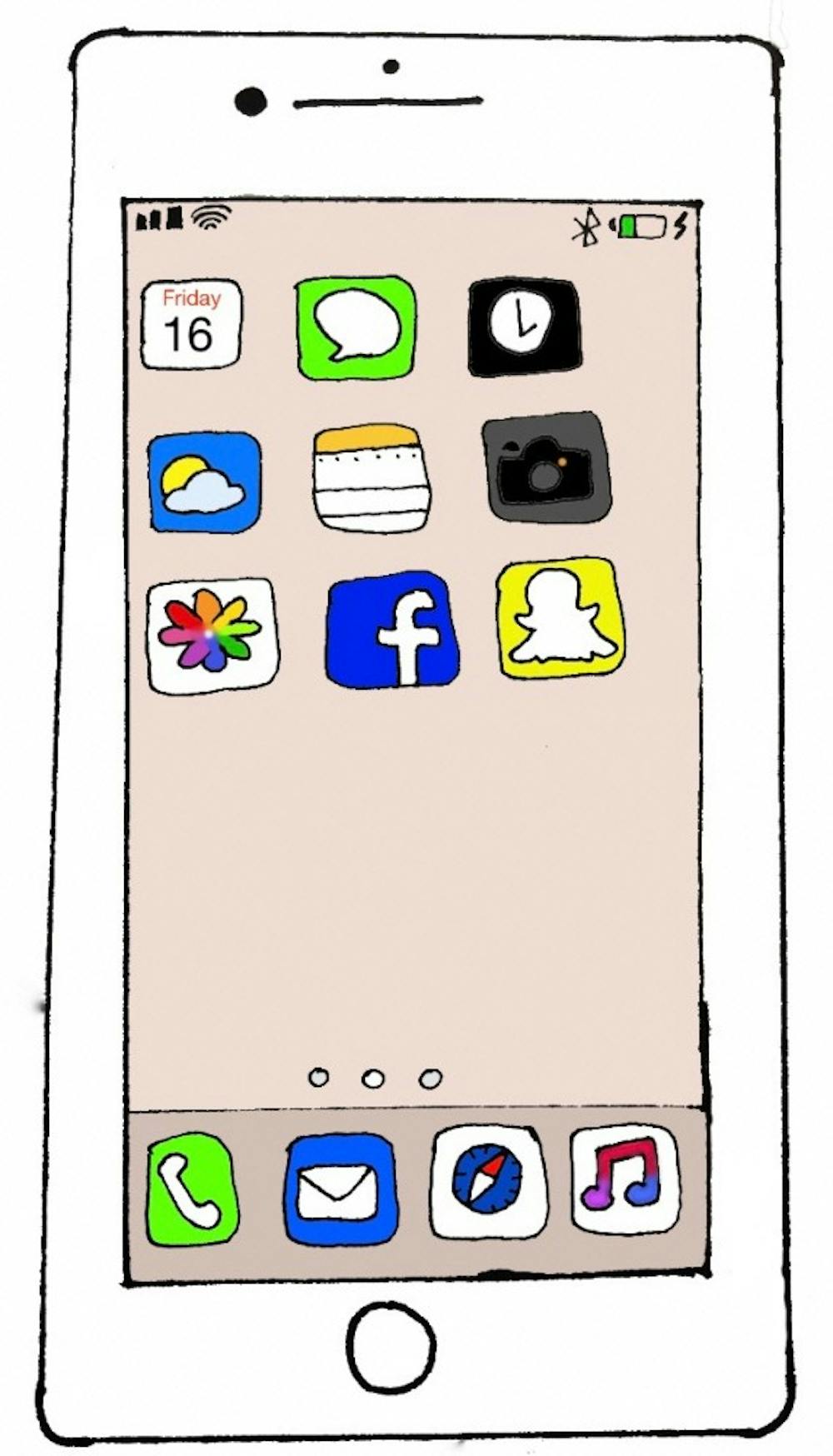When my friend group eats at a restaurant, one of my friends almost always asks to be seated by an outlet. I’ll admit that I have tanked an Uber driver’s rating because she did not provide a charger in the car. Members of my family have paid nearly the cost of a second phone for a charging cases. Some of us have become so dependent on our phones that panic ensues whenever their battery level falls to a measly 50 percent. We’ve come to tend to their batteries like they are our babies.
We are so willing to shift, sweat, and spend to keep these phones alive. But, why? What is so scary about just letting them die?
I’m the friend whose phone is always dead and I can tell you it’s liberating. Exhilarating, in fact. This habit started off as a result of poor planning (it doesn’t help that Apple iPhones have some of the lowest battery lives in the smartphone game), but has continued, because a dead phone brings me peace of mind.
Does it annoy people that my phone is never on? Yes. Did I get grounded a few times in high school because my dad couldn’t reach me? Yes. But I would rather neglect the phone in my back pocket than the person sitting next to me.
Or myself for that matter. The buzzes and bings make me feel like I am at the beck and call of others, and sometimes I only want to be responsible for myself. I want to immerse myself in my environment without anticipating interruption.
Aside from allowing me to enjoy my time more fully, a dead phone also makes the day pass less stressfully. For some, knowing they can contact and be contacted by whomever, whenever grants them a sense of security. For me, the constant presence of my contacts makes me feel less present and more anxious. I value the time I spend in person with people, and the beeps of notifications distract and detract from those conversations. Disconnecting enables me to focus on who is in front of me, instead of who’s not.
I may not like my phone, but I still think I am addicted to it. The Do Not Disturb function silences it, but the notifications are still only a glance away. When I am studying, I often bring my phone to the library just to turn it off. But the temptation of checking how many Instagram likes I’m racking up or if that special someone has texted me yet today wears down what little self-control I have, and five minutes later, it’s back on.
This petty need to check my phone makes me insecure. I don’t like waiting on the next text or Snap to validate my relationships. I think my phone brings out the most immature parts of myself, and I resent it for that. When it’s dead, it feels like a professor cancelling a precept last minute. I am so happy to have no choice but to invest in the moment.

People raise many objections to this point, but at Princeton, the main obstacle is the duo authentication system. I understand that the system is in place to protect our information, but I think it should be optional. I do not think anything on TigerHub or Blackboard is sensitive enough to prompt me to charge my phone and interrupt my day of zen. The OIT office rents students little duo pagers that can be returned any time before they graduate but, still, the University should allow students to decide to what lengths they are willing to go to protect their online accounts. Clearly, I’m not willing to go very far, and certainly not all the way to a charger. Princeton already limits phone use during Outdoor Action and Community Action trips for first-years. The University could further facilitate a less phone-focused culture by promoting the pagers or not requiring duo authentication.
With U.S. consumers reportedly spending up to five hours each on their phones every day, we may need to be forced to step away. And that is not to say that I don’t view owning a smartphone as a privilege. I am thankful for all the ways that it does benefit my life. I would not want to permanently turn back the clock, and live in a time when a camera, a calendar, and the internet weren’t all in our back pocket. I’m not saying people shouldn’t use their phones or take advantage of the technology available to them, but we should be aware that we can function without it. And sometimes being without a phone is exactly what we need.
Rachel Kennedy is a first-year from Dedham, Mass. She can be reached at rk19@princeton.edu.









